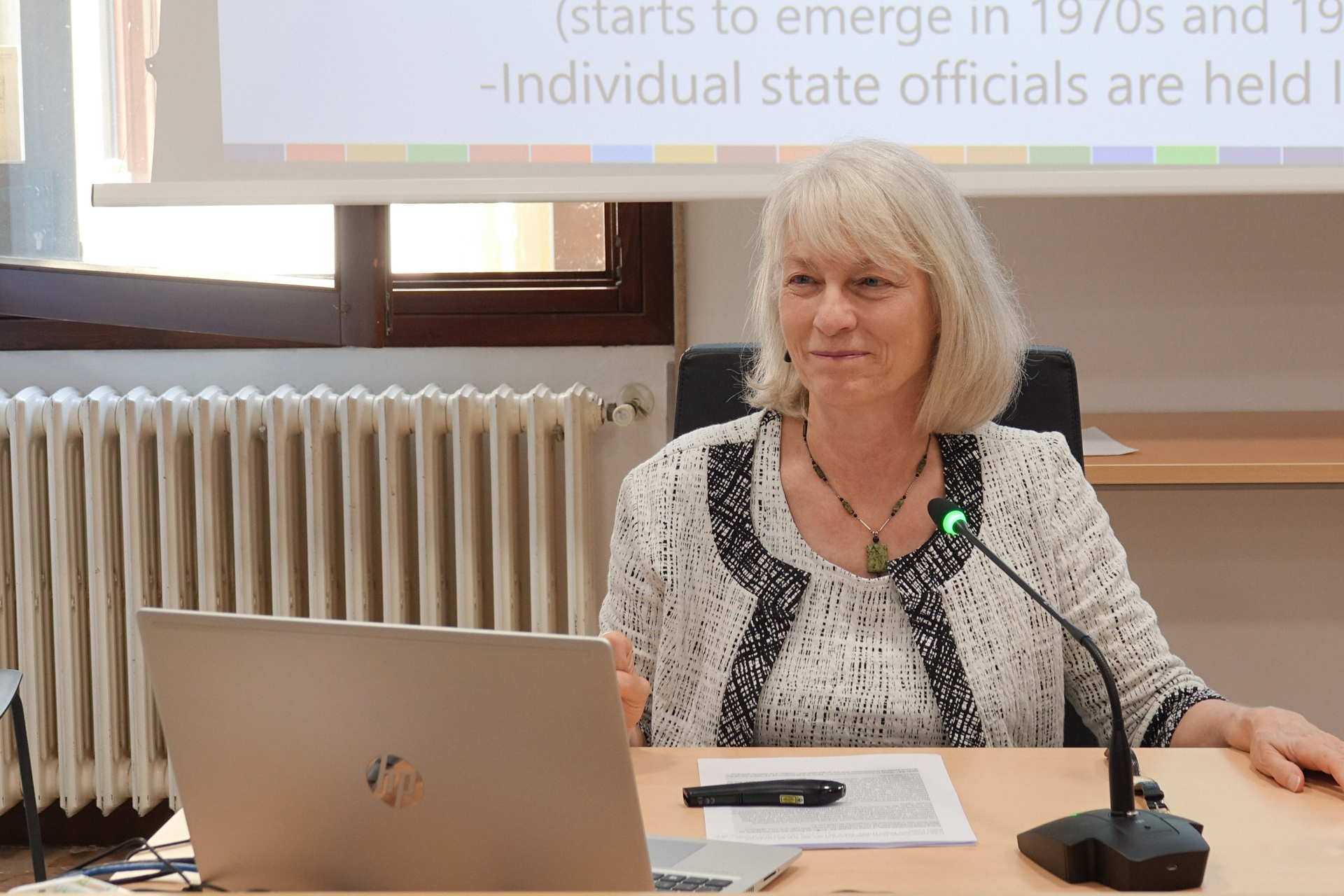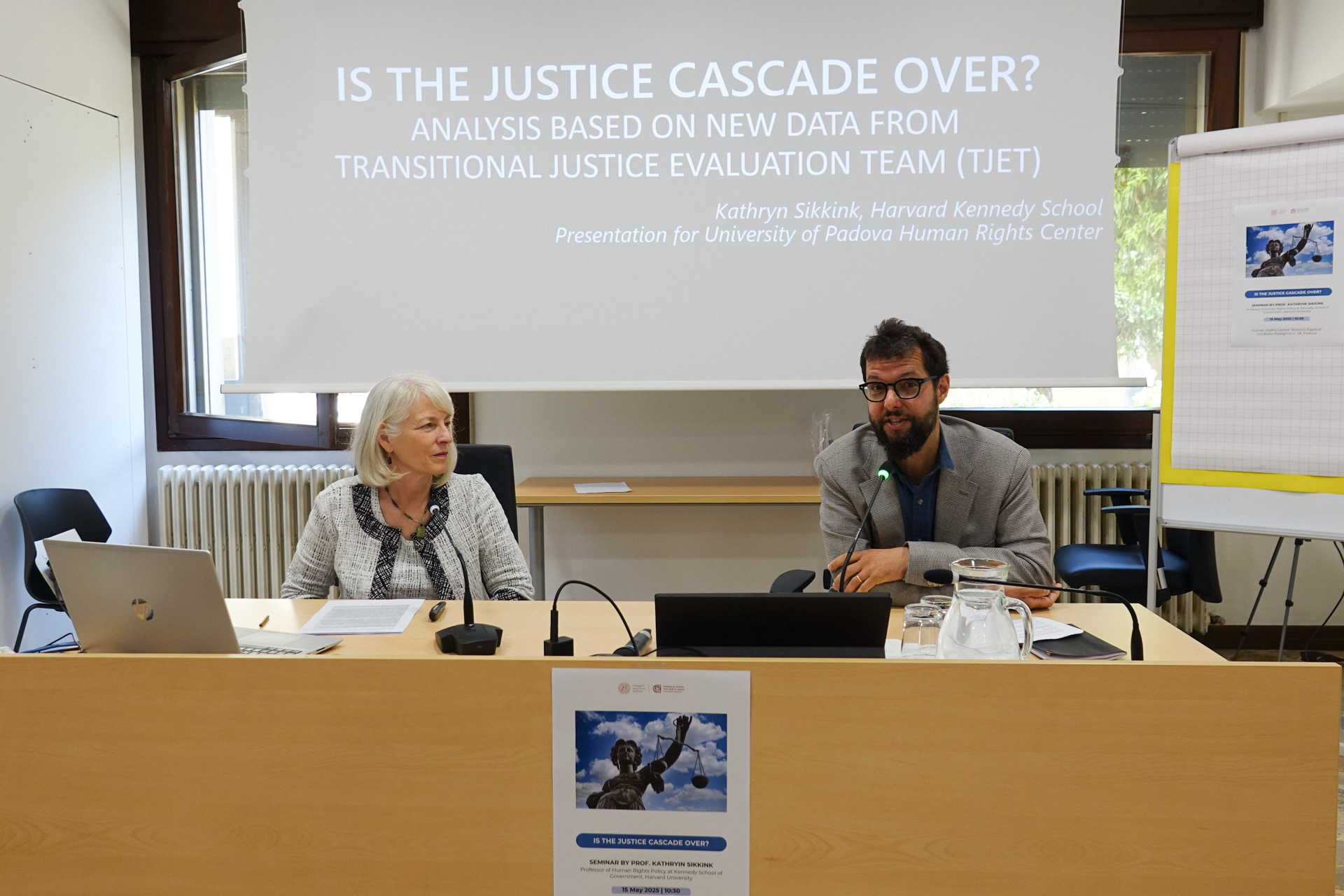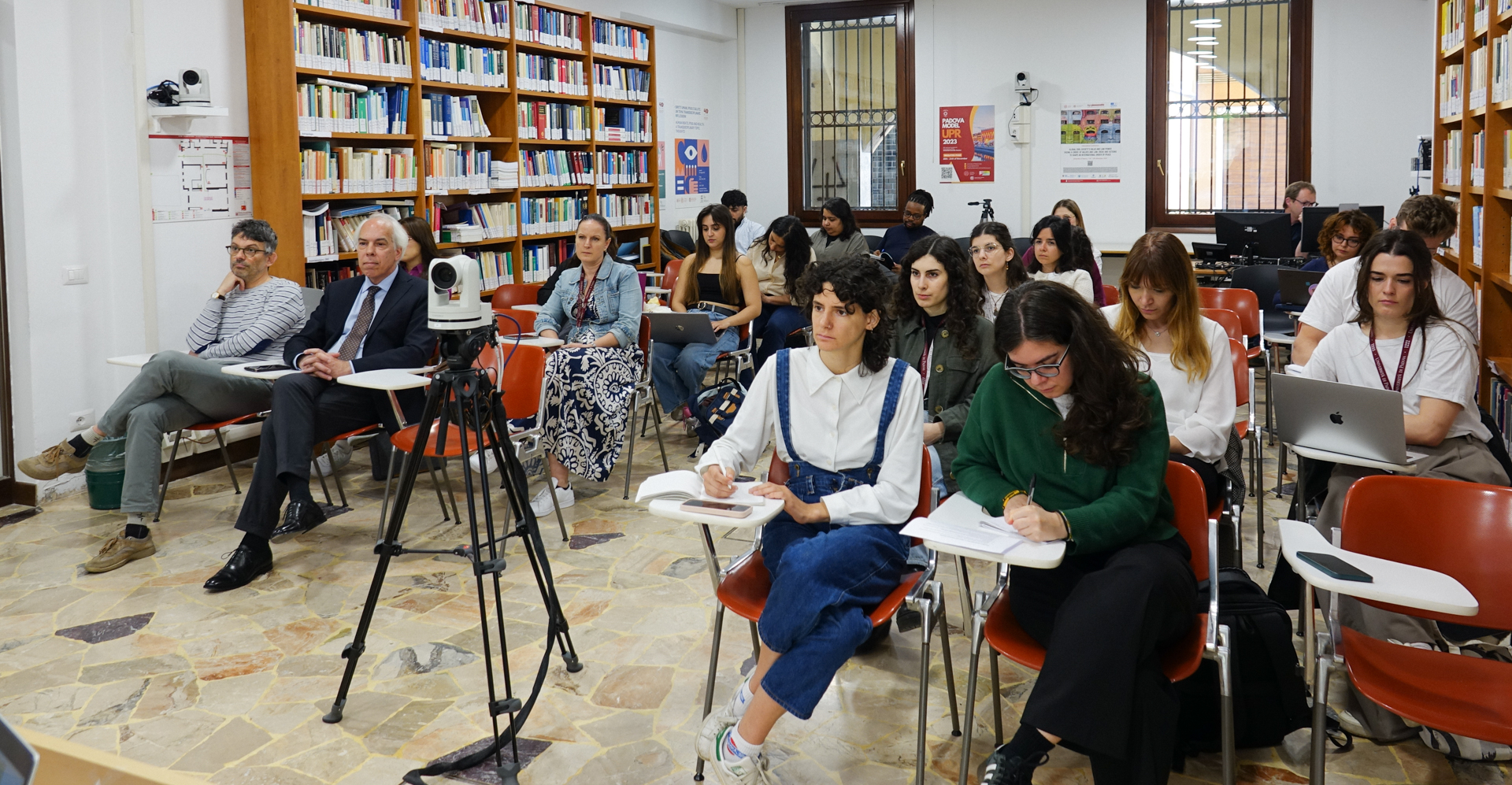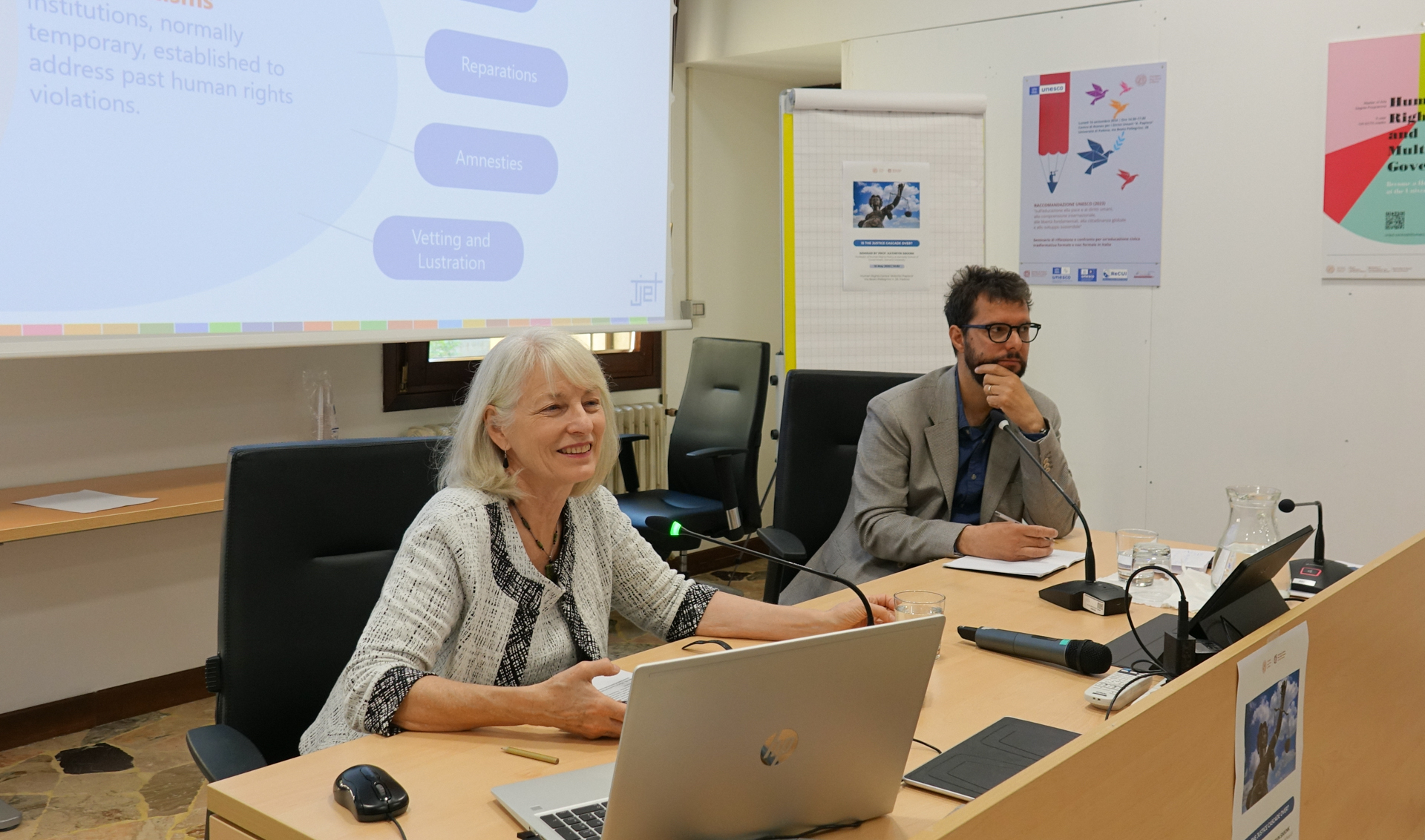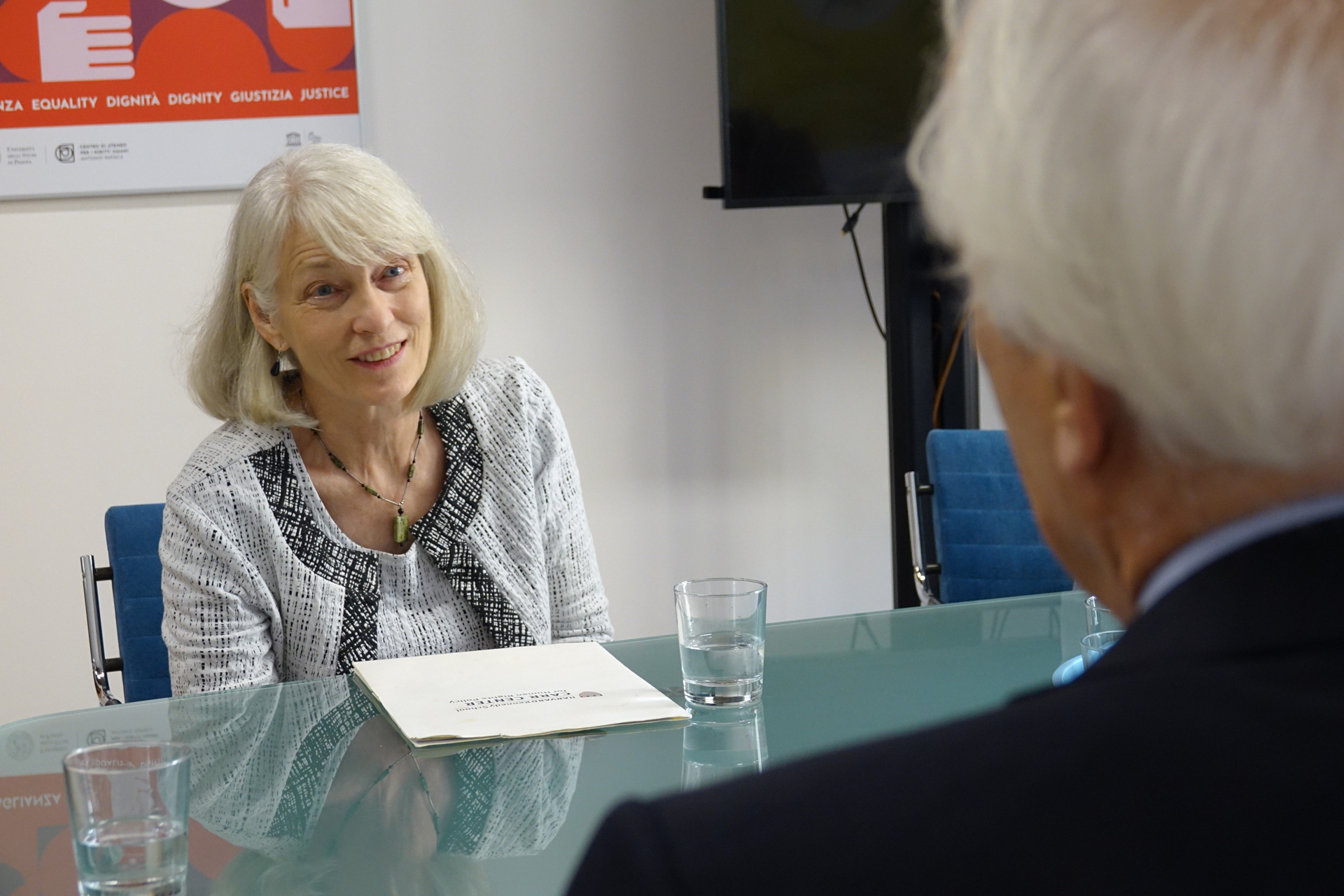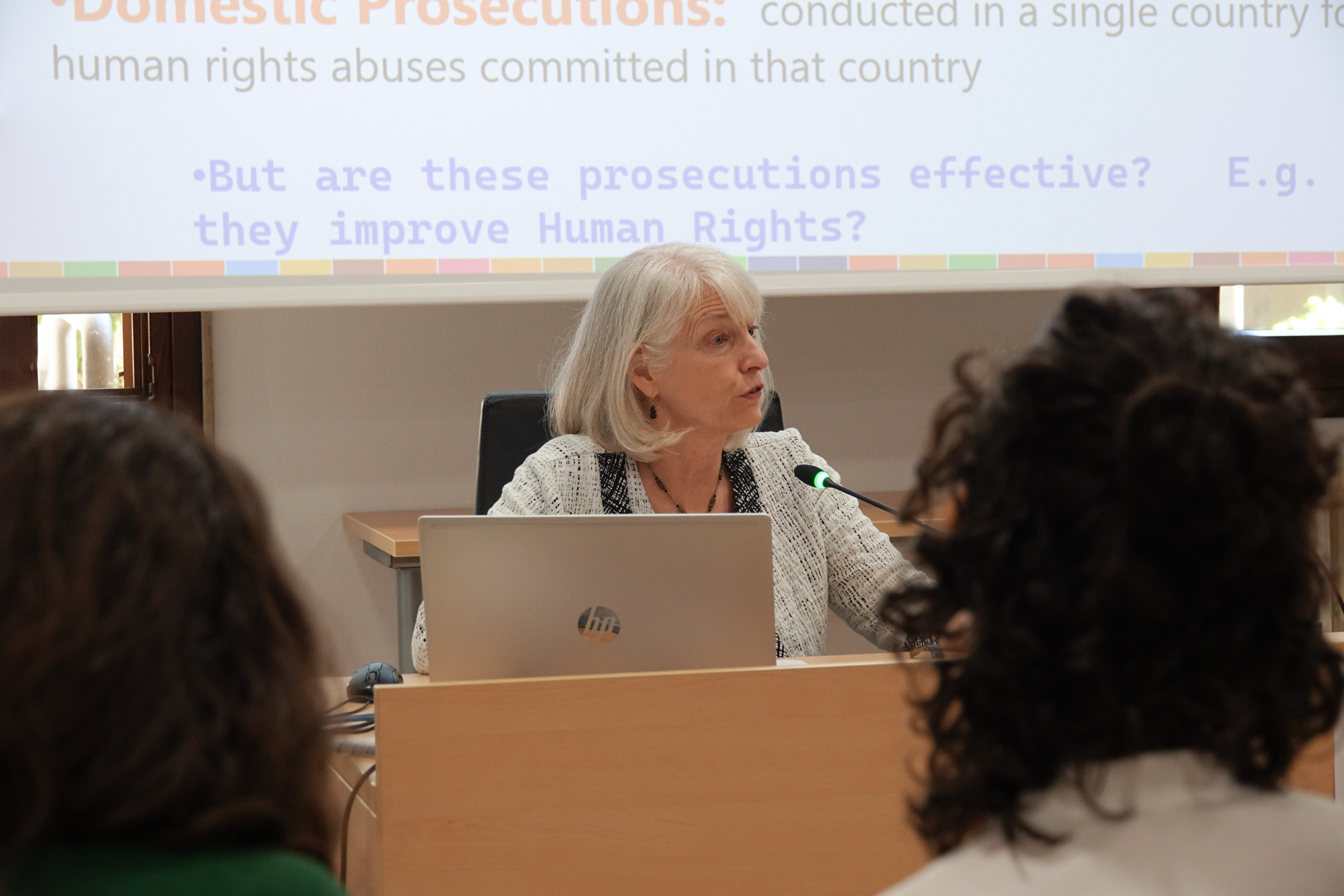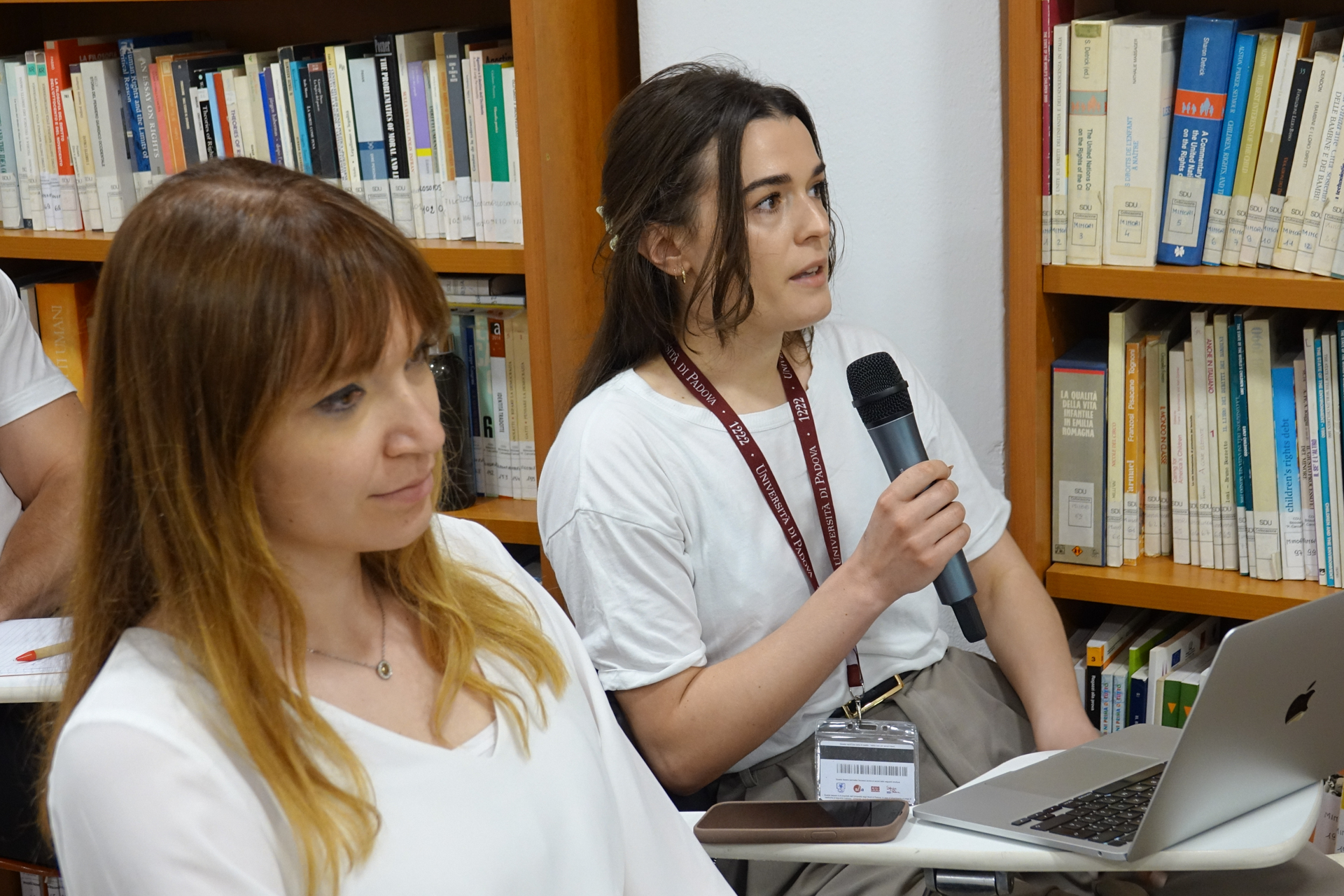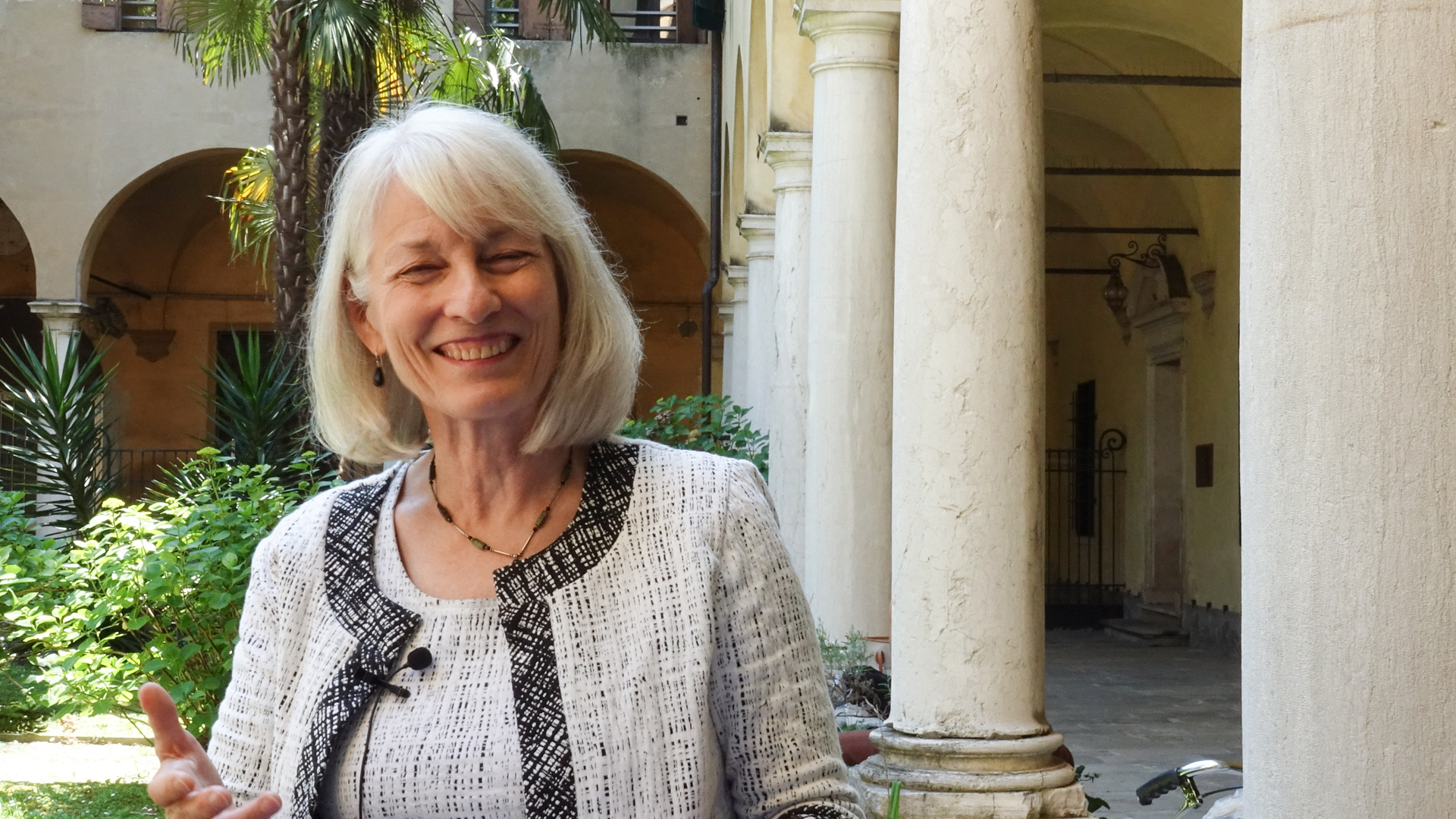Seminar with Kathryn Sikkink “Is the Justice Cascade over?”, Human Rights Center, Thursday May 15 2025
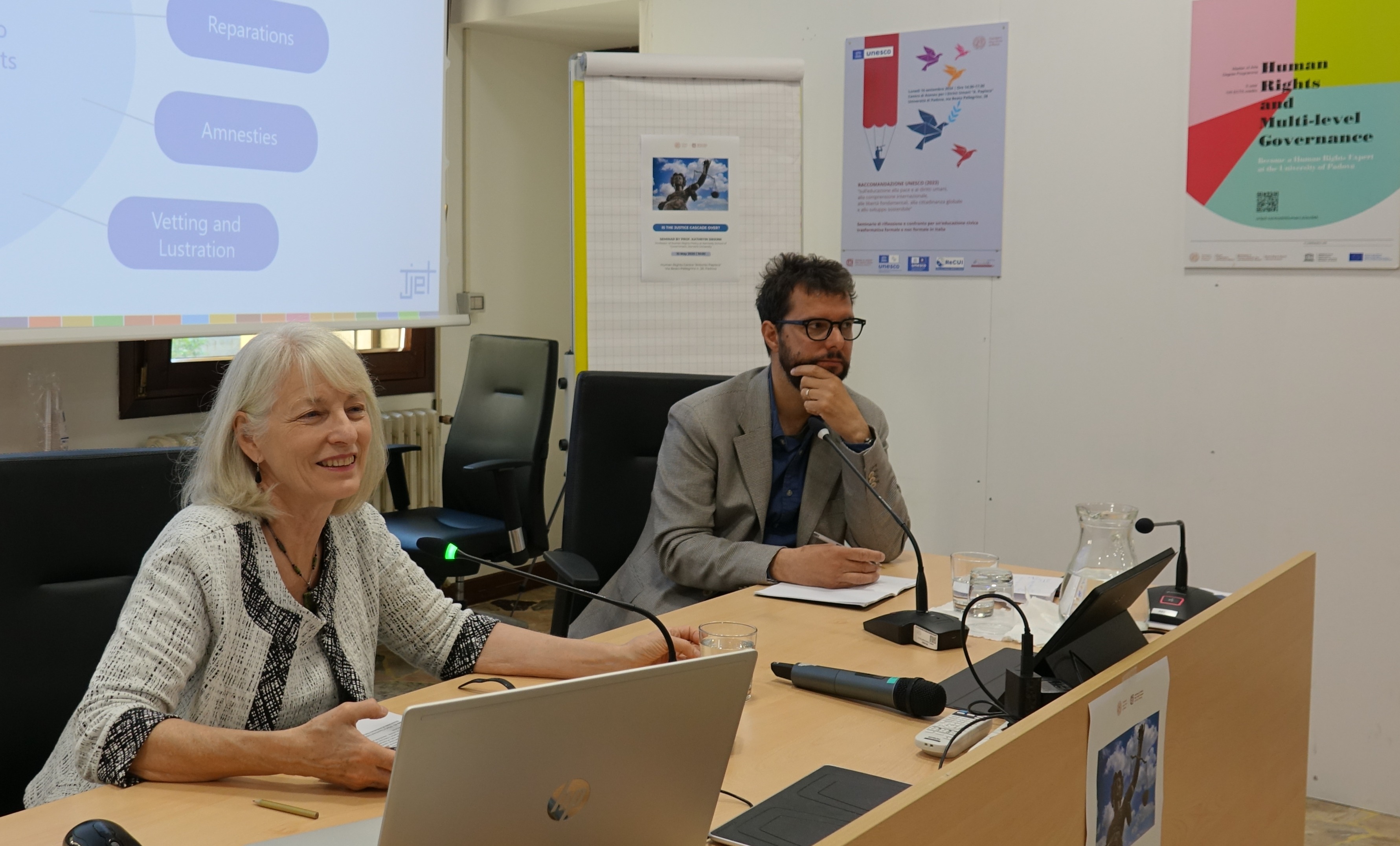
On Thursday, May 15, the Human Rights Center of the University of Padua hosted an important seminar given by Prof. Kathryn Sikkink, from the Kennedy School of Government (Harvard University), focusing on the concept of the “justice cascade” which she has developed.
The “justice cascade” describes a growing wave of criminal prosecutions at the national and international level to prosecute human rights violations committed by state officials and political leaders.
Prof. Sikkink's research, supported by data from the Transnational Justice Evaluation Team (TJET) project, has highlighted how criminal prosecutions for human rights violations during transitions to democracy or peace are found to be associated with improvements in human rights compliance, democratic engagement and conflict resolution.
However, the data also shows a disturbing inverse trend after 2010, with a decline in the use of domestic criminal trials. This decline appears to be attributable to a decrease in violence in countries that had made extensive use of such mechanisms and a slowdown in transitions to democracy.
Prof. Sikkink pointed out the apparent paradox that many of the countries that would most need transitional justice today are authoritarian regimes or are involved in conflicts, making implementation of these tools unlikely.
The seminar highlighted the crucial importance of continuing to support transitional justice mechanisms, especially in the most complex contexts, in order to strengthen human rights, democracy and peace. Further efforts will be needed to ensure that these tools are accessible wherever they are needed.
Professors, students, and PhD candidates from the human rights courses at the University of Padua actively participated in the seminar.


